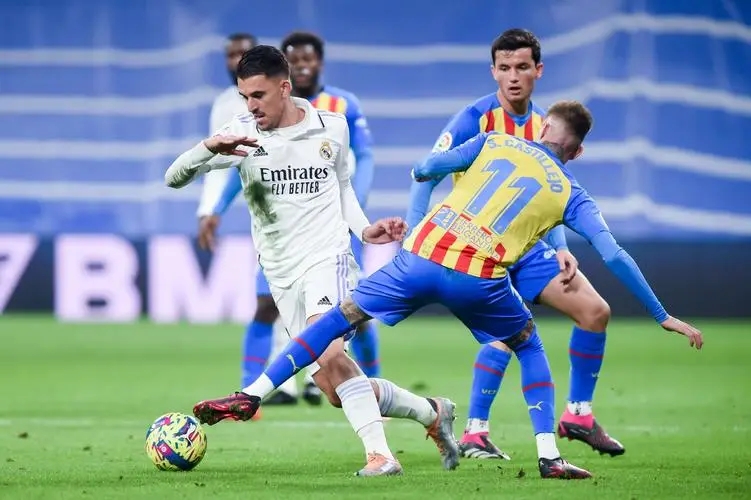
Real Madrid will host Valencia at the Santiago Bernabéu Stadium. This clash represents a stark contrast on the league table: the top-ranked, title-defending powerhouse versus the 18th-placed side desperately fighting for survival. On one side is Real Madrid, a club with deep heritage and championship ambitions; on the other, Valencia, struggling in the relegation zone, aiming to snatch crucial points away from home. This “Elite Dominance vs. Survival Struggle” matchup will have a direct impact on both the La Liga title race and the relegation battle.
Home and away form reveals a stark disparity. Real Madrid’s home record has been formidable this season, with 6 wins and 1 draw in 7 La Liga matches, remaining unbeaten at the Bernabéu. Over the last 10 home games, they have won 9 and drawn 1. Offensively, the team relies on seamless coordination between its star forwards and midfield, averaging over 2.4 goals per match. Defensively, the combination of a solid backline and a reliable goalkeeper leaves opponents with few opportunities, and the passionate home crowd amplifies their performance on both ends. In their last 5 home games, they have conceded only 2 goals.
In contrast, Valencia’s away form has been poor. In 7 La Liga away matches, they have managed just 1 win and 1 draw, suffering 5 losses. Their last 4 away games have all ended in defeat. Defensively, the team is porous, conceding more than 2.3 goals per match against strong opponents, and they have yet to defeat any of the league’s top two teams on the road. Their ability to withstand pressure away from home ranks among the league’s lowest.
Tactical styles create a high-stakes clash. Real Madrid employs a “possession-dominant, multi-dimensional attack” system. The midfield orchestrates the game with precise short passes, linking up effectively with the forwards. The wingers’ dribbling and crossing create constant threats, while the star forwards can both finish individually and create opportunities for teammates. Set pieces contribute over 20% of the team’s goals, making them a significant scoring method. However, against dense defensive setups, Real Madrid’s sometimes slower attack can lead to missed chances.
Valencia, on the other hand, favors a “defensive counterattack with wing exploitation” strategy. Their midfield focuses on interceptions and quick transitions, launching attacks through long passes or wide runs. The forwards’ pace is an advantage, but the midfield lacks control, and under high pressing from elite teams, Valencia’s backline is prone to mistakes. Their offensive capability is limited, having scored only 2 goals in their last 5 away matches and struggling to organize effective attacks against top teams.
Historical encounters and recent form heavily favor the home side. In the last 5 meetings between Real Madrid and Valencia, Madrid has won 4, including 3 clean sheets, establishing psychological dominance. Last season, they won both fixtures against Valencia, including a 4-goal home victory. Real Madrid is in excellent form, with 4 wins and 1 draw in the last 5 La Liga matches, recently defeating mid-table challengers to consolidate their top position. Key players are performing consistently, and team cohesion is improving.
Valencia, conversely, remains in poor form, with 1 draw and 4 losses in their last 5 La Liga games. Defensive lapses continue, key players’ form fluctuates, and away from home, morale and execution are significantly weaker. Under the pressure of relegation, the players’ mentality appears increasingly anxious.
Conclusion: Real Madrid’s home advantage, tactical depth, and star power overwhelmingly outweigh Valencia. The visiting team’s away struggles, defensive vulnerabilities, and lack of attacking potency make it extremely difficult to compete. Real Madrid is expected to secure victory at home, extending their lead at the top of the table. If Valencia cannot improve defensive efficiency and counterattacking quality, they risk another away defeat, further endangering their survival prospects.

